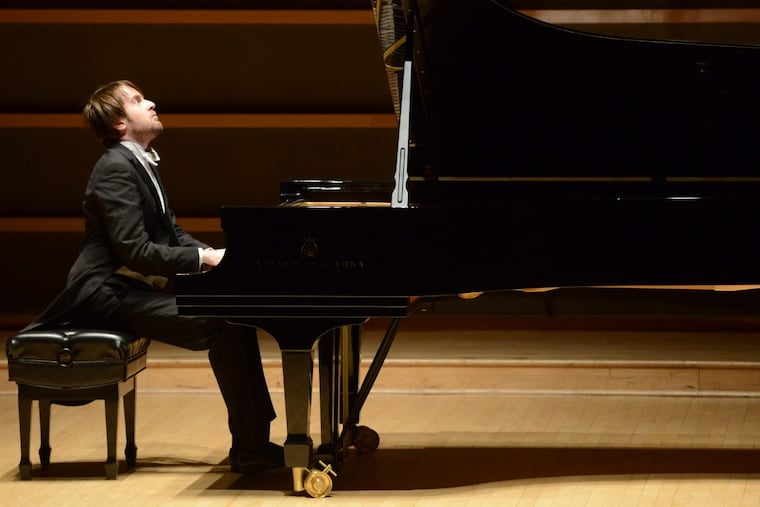Beethoven, Trifonov, and a total delight named Louise Farrenc at the Philadelphia Orchestra now
A fast, hot, and completely engaging performance introduced a curious Philly audience to the 19th century French composer. Trifonov was his usual great self.

Though the Philadelphia Orchestra’s Thursday concert was part of its BeethovenNOW series, the major point of curiosity was neither Beethoven (in his 250th birthday year) nor star pianist Daniil Trifonov, but one Louise Farrenc.
The name draws blanks even from the most seasoned Philadelphia Orchestra goer, along with her equally unknown Symphony No. 2 that occupied the prime program slot after intermission. But this increasingly recognized French composer (1804-1875) really needs no introduction, so fluently does the music speak for itself.
Best known as a concert pianist, she was contemporary of Felix Mendelssohn, and immediately sounds it, whether by direct influence or because she was breathing the same Biedermeier air. But Farrenc’s 1844 symphony had one thing Mendelssohn lacked: charm. Mendelssohn’s perfect-at-any-cost rigor is replaced by Farrenc’s genteel wit and taste for upending your expectations amid familiar musical gestures. Never did your ears veer toward autopilot.
Unconventional countermelodies, quickly shifting wind writing, and a final-movement fugue built on an unlikely melody (rather expansive for such a tightly-wrapped form) was all evidence of an original sensibility, 19th-century style. Though 20th-century composers were expected to reinvent every aspect of their art, symphonies had templates in Farrenc’s time and those who did not follow them (like Hector Berlioz) paid a lifelong price.
The performance under music director Yannick Nézet-Séguin was fast, hot, and completely engaging, though I wished for greater variation in string sound and that everybody would’ve sat back and enjoyed the piece a bit more. That could happen in later performances.
A piece by the profoundly promising Lili Boulanger (1893-1918) began the program on a heartbreaking note of what might have been, had she lived beyond age 24. Of a Sad Evening was written shortly before her death, and leaves no doubt why. It’s a fascinating work that begins atmospherically in a Debussy sort of way but has periods of dissonance welling up from within like a volcanic disturbance. The orchestra and Nézet-Séguin made a deep connection with the piece.
Now for Trifonov: His strong Russian personality promised unusually original Beethoven, whose Piano Concerto No. 1 was scheduled for Thursday and Friday, while Saturday and Sunday have him playing the more extravagant Piano Concerto No. 5. Thursday’s audience didn’t get anything that was second best. The performance was standard-setting, with Trifonov’s Mozartean sparkle on the surface and just enough Chopinesque flexibility one layer down to allow for some highly personal and thoroughly convincing phrase readings.
In what could be a preview of Nézet-Séguin’s forthcoming Beethoven symphony cycle, the orchestra captured the composer’s humor, crankiness, and youthful idealism with a huge variety of unblended sounds suggesting that the music is a playground for particularly rambunctious children. It worked great — rough edges, abrupt contrasts, and all.
Postscript: Trifonov’s reflective, halting encore was W.F. Bach’s Polonaise No. 8. (His encore at the Friday afternoon performance was C.P.E. Bach’s Rondo in C Minor.) And though the pianist has borne a striking physical resemblance to both Chopin and Liszt in past years, I’m relieved to report that he now looks nothing like Beethoven.
The program repeats (with changes in Beethoven concertos) Friday, Saturday, and Sunday at the Kimmel Center. Tickets: $39. Information: 215-893-1999 or philorch.org.